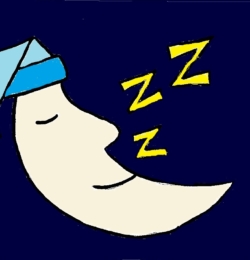 By Dan Morris, Drummond Sports Rehabilitator
By Dan Morris, Drummond Sports Rehabilitator
We all know the basics of sleep advice; get eight hours of sleep a night, turn your phones and televisions, etc. However, do we fully appreciate the effect that sleep has on our pain? Our stress levels? Our ability to recover? Our injury risk? We will delve into this briefly and hopefully you will have a greater appreciation at the end of this mini blog.
Sleep and pain
If you have persistent back pain you are 18 x more likely of what is defined as clinical insomnia (> 3 months of interrupted sleep 3 x a week)
- Reduction in sleep seems to predict next day pain, rather than pain predicting sleep
- If you are restricted to 4 hrs of sleep for 5 nights, your sensitivity of pain rises significantly.
Now, the above are just some small nuggets of information based on looking at the literature, but it shows that sleep can have a profound effect on our level of symptoms, especially next day symptoms, and may be something to try to modify when trying to get out of a pain state.
Sleep and injury
- If adolescents have less than 8 hours sleep a night, their injury risk increases x 1.7
- Military personnel reduced their risk of a bone stress injury by enforcing greater than 6 hours sleep a night.
The two examples above show that not only does sleep effect how sensitive we are, it also has an effect on our ability to recover and whether we actually sustain an injury; less sleep = more injuries, increasing sleep = reduced injuries.
Recent changes?
If you have a sudden increase in pain or injury, recent changes in sleep habits are something you should definitely consider.
- Have you changed the time you go to bed?
- Doing additional work prior to bed?
- Increase in alcohol prior to bed?
- Increase in stress before bed?
- Have you started ruminating before bed?
- If so, are any of these modifiable?
- Feel less fresh in a morning?
What can you do?
- Bed is for sleep: if you are in bed reading/watching tv or texting – go somewhere else. You do not want your body to associate bed with anything other than sleep
- Try not to worry about the following day
- Turn off all screens and Tv’s
- Reduce any stimulants
- Wind down at least 30 minutes prior to going to bed
Conclusion
- Sleep can have a big effect on how sore you are
- It can affect your sleep and injury risk
- Basic changes in lifestyle habits can affect your sleep
- If you try basic sleeping strategies and you are still struggling to get a good night’s sleep, seek help from a professional such as your GP
Note: this is always part of a bigger picture and sleep is never likely to be the only thing contributing to your symptoms. If you are currently suffering with persistent pain or an injury then seek advice from a therapist.
